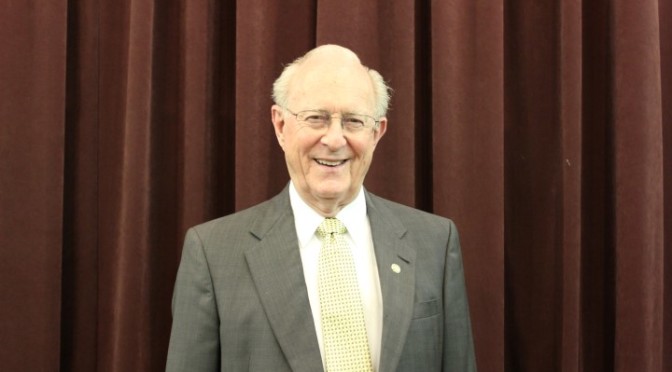“Having Gifts Differing”
The having of gifts points to the manner in which, by our good works, we may glorify our Father in Heaven (Matt. 5:16). He has conferred them, whether supernatural or natural, and when they are used in our work as stewards, they bring the Giver glory. These different endowments are distinguishing factors in individuals who use these abilities. It would seem that Paul here refers to the spiritual gifts (I Cor. 12), since natural ability does not enable one to prophesy. But, the principles apply in both instances, and the gifts mentioned, except in prophecy, do not force our thinking beyond natural endowments used in our service to God.
“Prophecy”
This at first carried the idea of one predicting the future, but this was not his main work. Rather, his function mostly was declaring the divine will and making known the mind of God. The order given in Ephesians 4:11 mentions them as distinct from the apostles and next to them in authority. They were under the influence of inspiration to speak what the apostles revealed. They could control the power within them, but some abused it in Corinth (I Cor. 14:2-11). They were subject to the apostles and superior to other teachers and even elders in the church. But their work, like that of the apostles, was temporary, and when their purpose was accomplished, their function ceased (I Cor. 13:8). They, like the apostles chosen by the Lord, had no successors. We cannot and should not overlook their part in bringing us the truth, by which we can be made free (John 8:32). The third verse of Romans 12 speaks of God’s having “dealt to every man the measure of faith,” while verse six refers to “the proportion of faith.”
Since the gospel is the measuring instrument of faith and since that faith is said to come by “hearing, and hearing by the word of God” (Rom. 10:17), we conclude that God’s Word is the all important factor of spiritual thinking. The saving message is dispensed for the purpose of developing faith in lost humanity. Before the Bible was completed in written form, men were dependent on these inspired teachers or New Testament prophets for “the perfecting of the saints, for the work of the ministry, for the edifying of the body of Christ” (Eph. 4:12). Following the time when full revelation was written, men are now able to “know even as also I am known” (I Cor. 13:12), to be no longer “children, tossed to and fro, and carried about with every wind of doctrine, by the sleight of men, and cunning craftiness, whereby they lie in wait to deceive” (Eph. 4:14), and now able to look “into the perfect law of liberty” (Jas. 1:25).
We should be thankful daily for the Bible, “the faith which was once delivered unto the saints” (Jude 3). Peter, in speaking of “the end of all things,” exhorted Christians to be fervent in love toward other Christians, using hospitality without grudging, and “as every man hath received the gift (a gift, ASV), even so minister the same one to another as good stewards of the manifold grace of God. If any man speak, let him speak as the oracles of God; if any man minister, let him do it as of the ability which God giveth: that God in all things may be glorified through Jesus Christ, to whom be praise and dominion for ever and ever, Amen” (I Pet. 4:10-11). Seeing that these gifts are given according to grace or favor of God, we are caused to be humbled and not think of ourselves “more highly than we ought to think” (Rom. 12:3). And that our abilities differ should cause us to be thankful that God gave to each of us what seemed good unto Him. We should use these talents without murmuring or complaining. Paul makes it clear in his letter to the Philippians that, WHEN THEY OBEYED GOD as Christians working out their own salvation in accordance with their abilities, they should consider that this is the manner that God works in them “both to will and to do of his good pleasure” (Phil. 2:12-14). In differing, we are distinctive in opportunity as well as talents. As we hold forth the life-giving word (John 6:63), our lives give light to the world. Because all comes from our Heavenly Father, we shall meet Him in peace at last and hear him say, “Well done.” We will return our talents with praise and adoration to the giver without being able to claim that the talents, opportunities, or the rewards are of ourselves. To God be all the praise!
(To be continued.)
